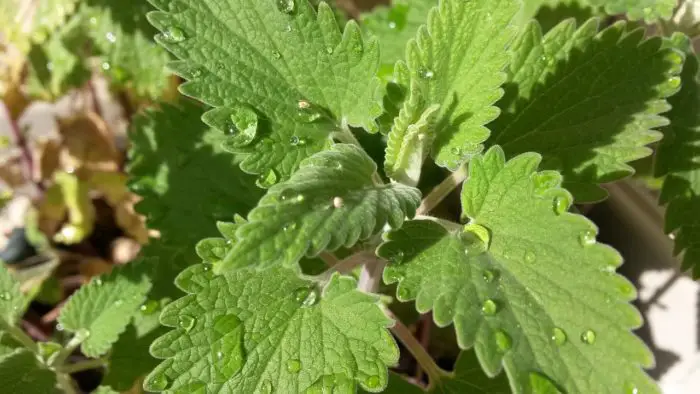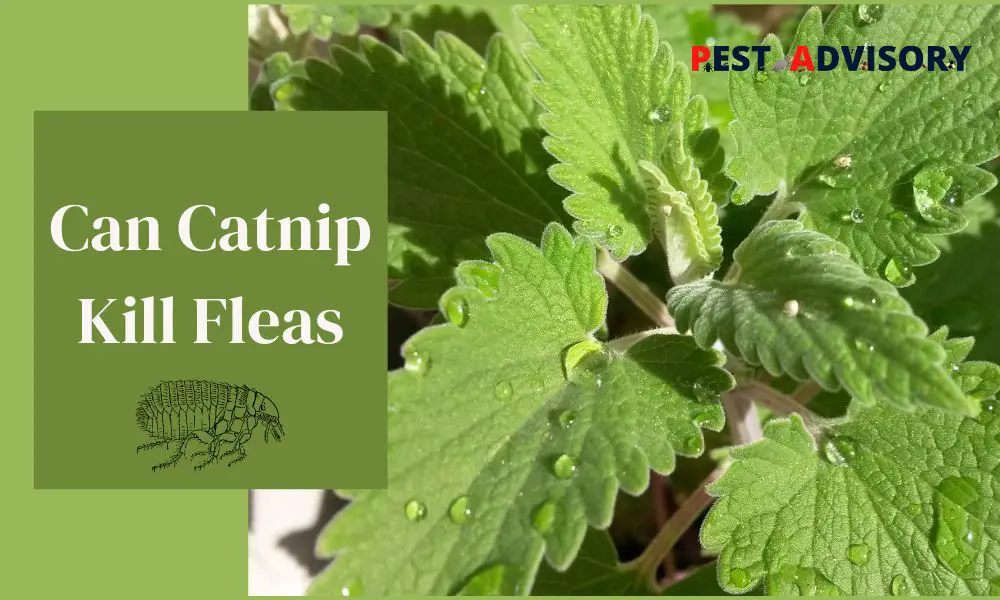Have you ever observed your cats scratching themselves with their teeth and nails? It might be due to the presence of fleas on their bodies.
We understand that watching your pets in such miserable conditions is not comfortable for you, and you want to eliminate fleas as soon as possible.
Probably, you have heard about the use of catnip as a flea repellent. Is it true? If yes, then how?
Important Note: If you're tired of pests and want a reliable solution, then you should definitely consider seeking help from a professional pest control company. DIY solutions can be effective, but if you're dealing with a significant pest infestation, you don't want to rely solely on DIY methods. Pest control companies typically don't charge huge fees. You can fill out this form to receive free quotes from the top local pest control companies, and compare the quotes and see for yourself. Then, finally, your pest problems will be eliminated for good.
You do not need to worry anymore. We are here to rescue you. You will get information about the effect of catnip and how to use it to get rid of fleas in this article.
What is Catnip?
Catnip, also known as Nepeta cataria, is an herb in the mint family that is native to Europe and Asia. It is a perennial plant that produces a fragrant essential oil, which contains a chemical compound called nepetalactone.
Catnip is best known for its effects on cats. When cats smell or consume catnip, they often exhibit behaviors such as rolling, rubbing, and drooling. Some cats may become more active or playful, while others may become more relaxed or even sedated. Not all cats respond to catnip, however, as the sensitivity to the herb is a genetic trait that is passed down through generations.

Medicinal Uses of Catnip
Catnip has been used for various medicinal purposes throughout history, including as a digestive aid and as a mild sedative. In modern times, catnip is commonly used as a natural remedy for various ailments, such as anxiety, insomnia, and menstrual cramps. Catnip is also sometimes used as a natural insect repellent, particularly for fleas.
Catnip is available in various forms, including dried leaves, essential oil, and catnip-infused products such as toys and sprays. It is generally considered safe for cats to consume or interact with, but it is important to monitor your cat’s behavior and to avoid overuse, as too much catnip can cause digestive upset or other adverse effects. Additionally, some cats may be allergic to catnip, so it is important to introduce it gradually and to monitor your cat for signs of a reaction.
| Scientific Properties | Benefits |
|---|---|
| Nepetalactone | Natural insect repellent, particularly for fleas |
| Rosmarinic acid | Anti-inflammatory, antioxidant, and antimicrobial properties |
| Thymol | Antimicrobial properties |
| Camphor | Antimicrobial properties help relieve congestion and coughing |
| Tannins | Astringent and anti-inflammatory properties |
Can Catnip Kill Fleas?
The answer to this query is no. You cannot use catnip oil to kill fleas.
While the smell of catnip oil repels fleas, it is not strong enough to kill them. Thus, you can only use catnip oil as a temporary solution to get rid of fleas.
We urge you to consider alternatives to catnip oil that can help you to eliminate fleas permanently, like using salt or other products available in the market.
Flea infestation is a serious problem, and you must not ignore it. Also, remember to clean your home and bathe your pets properly at regular intervals.
Catnip as a Flea Repellent
Catnip has been found to have natural insect-repelling properties, particularly for fleas. The compound responsible for this effect is nepetalactone, which is found in the essential oil of the catnip plant. Nepetalactone has been shown to be a more effective flea repellent than DEET, a synthetic insect repellent commonly used in commercial products.
When used as a flea repellent, catnip can be applied topically or used in a spray form. It is important to note that while catnip may help repel fleas, it is not a substitute for other flea prevention methods such as regular grooming, vacuuming, and using flea-preventative products recommended by your veterinarian.
What is the Effect of Catnip on Fleas?
You must be thinking about the property of catnip that can help you eliminate fleas. It is none other than its smell.
Like every other essential oil, catnip oil also has a characteristic odor. It has a strong odor that fleas hate.
The smell is intolerable for them, and thus, they get away from it as soon as they can. It does repel not only fleas but also mosquitoes and other insects.
How to Use Catnip as an Effective Flea Repellent?
Now that you know that catnip is an effective flea repellent, let’s move on to how you can use it to repel fleas parasitizing on your cat.
- Take one part of catnip oil and mix it with a hundred parts of coconut oil in a spray bottle.
- You can add little water to this solution to dilute it further.
- Shake it well, and congrats! The solution is ready to spray.
- Spray the prepared solution on your cat’s fur and leave it. Do not spray it on your cat’s eyes and spray it away from you.
It is mostly safe to use catnip oil on cats. But consider paying a visit to the vet if you feel that your cat is behaving differently or acts irritated by using catnip oil around it.
Is Catnip Safe for Dogs?
Catnip is generally considered safe for dogs to consume or interact with, but it is important to note that cats and dogs may have different reactions to the herb. While catnip is best known for its effects on cats, some dogs may also be attracted to the scent and taste of catnip.
When consumed in small amounts, catnip is unlikely to cause any adverse effects in dogs. However, consuming large amounts of catnip can cause digestive upset or other adverse effects, similar to cats. Additionally, some dogs may be allergic to catnip, so it is important to introduce it gradually and to monitor your dog for signs of a reaction.

Health Benefits of Catnip for Cats and Dogs
Catnip is known for its effects on cats, but it may also offer some health benefits for both cats and dogs. Here are some potential health benefits of catnip
For Cats
Reduces stress and anxiety
Catnip contains compounds that can help calm and relax cats, which can be helpful in stressful situations such as vet visits or travel.
Promotes digestive health
Catnip has traditionally been used as a digestive aid and may help with issues such as bloating, constipation, and diarrhea.
Helps with arthritis pain
Catnip contains compounds that have anti-inflammatory properties, which may help relieve joint pain in cats with arthritis.
For Dogs
Reduces anxiety and hyperactivity
Some dogs may respond positively to the calming effects of catnip, which can be helpful in reducing anxiety and hyperactivity.
Promotes relaxation and sleep
Similar to its effects on cats, catnip may help promote relaxation and sleep in dogs.
Repels insects
As mentioned earlier, catnip has natural insect-repelling properties, which can be useful for dogs that spend time outdoors.
Health Risks associated with Catnip for Cats and Dogs
Catnip is generally considered safe for cats and dogs to consume or interact with, but there are some potential health risks to be aware of:
For Cats
Overstimulation
While catnip is generally calming for cats, some cats may become overstimulated and exhibit hyperactive or aggressive behavior. It is important to monitor your cat’s behavior when introducing catnip and to avoid overuse.
Digestive upset
Consuming large amounts of catnip can cause digestive upset in cats, including vomiting and diarrhea.

For Dogs
Allergic reactions
Some dogs may be allergic to catnip, which can cause symptoms such as itching, hives, or difficulty breathing.
Digestive upset
Like cats, dogs can also experience digestive upset if they consume too much catnip.
It is also important to note that while catnip is generally safe for cats and dogs, there are some plants in the mint family (which catnip belongs to) that are toxic to pets, such as pennyroyal and spearmint. Therefore, it is important to ensure that you are using catnip specifically and not a different plant in the mint family when giving it to your pet.
Final Words
Catnip is effective against fleas only to a certain extent. So use it along with other flea repellents to get maximum benefits.
As with any herbal remedy, it is recommended to consult with a veterinarian before using catnip for medicinal purposes, especially if your pet has a pre-existing health condition or is taking medication. Additionally, it is important to monitor your pet’s behavior and to avoid overuse, as too much catnip can cause digestive upset or other adverse effects.
Please get in touch with professional services if you cannot get rid of fleas with home remedies yourself. They are experts and can do the job better.
That’s it for now. We hope that you got the desired information about the use of catnip in this article. Thanks for reading through!

